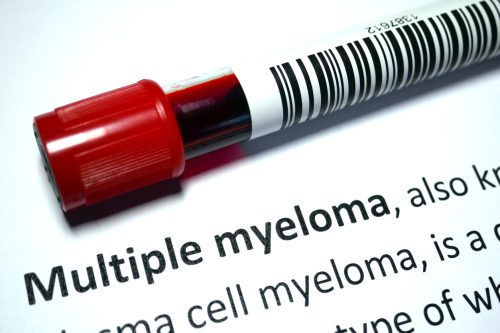
24 RCCA Physicians Named to 2025 Castle Connolly ‘Top Doctors’ List for Exceptional Cancer Care
A cancer diagnosis can be frightening. An individual may worry about how, or if, they will get better. The future becomes unclear and the strain
HIPAA Alert: Potential Data Breach Learn More
Questions on Oncology, Hematology and/or Infusion Clinical Services due to COVID-19 Crisis – CALL 833-698-1623
Important Information for Our Patients Regarding the Coronavirus.
RCCA Providing Area Cancer Patients with Access to Care During Coronavirus Outbreak
RCCA Offering Patients Virtual Visits During Coronavirus Pandemic
Multiple myeloma (MM) is a rare type of blood cancer that often develops without early symptoms, making awareness of risk factors essential. Regional Cancer Care Associates (RCCA) provides insights on the factors that may increase a person’s likelihood of developing multiple myeloma.
With more than 20 locations across New Jersey, Connecticut, Massachusetts, Maryland, and the Washington, D.C., area, RCCA is dedicated to keeping patients informed about the latest cancer research and advancements in oncology care.

Certain environmental exposures and lifestyle factors have been linked to multiple myeloma.
Several medical conditions have been associated with a higher likelihood of developing multiple myeloma.
Certain autoimmune diseases have been linked to a higher risk of myeloma, including:
A plasmacytoma is a type of plasma cell tumor that may increase the likelihood of developing multiple myeloma.
Regional Cancer Care Associates (RCCA) provides patients with the latest information on multiple myeloma and other blood cancers. With more than 20 locations across New Jersey, Connecticut, Massachusetts, Maryland, and the Washington, D.C., area, RCCA remains committed to delivering expert oncology care and patient education.
To learn more about multiple myeloma risk factors or schedule a consultation, contact RCCA at 1-844-410-7301 or contact RCCA today.
Sources:
For more information or to schedule an appointment,
call 844-346-7222. You can also schedule an appointment by calling the RCCA location nearest you.

A cancer diagnosis can be frightening. An individual may worry about how, or if, they will get better. The future becomes unclear and the strain

A cancer diagnosis can bring a wide range of emotions, from fear and stress to sadness and hope. These feelings are a natural part of

“What happens next?” “Where should I go for treatment?” They are questions physicians often hear after informing a patient that they have identified potential cancer.

Regional Cancer Care Associates is one of fewer than 200 medical practices in the country selected to participate in the Oncology Care Model (OCM); a recent Medicare initiative aimed at improving care coordination and access to and quality of care for Medicare beneficiaries undergoing chemotherapy treatment.